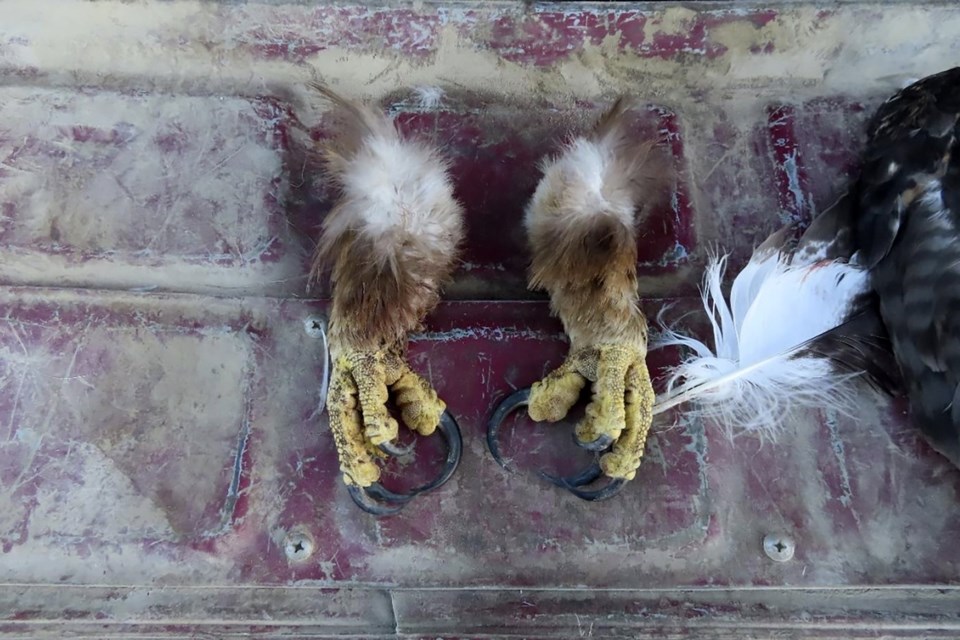BILLINGS, Mont. (AP) — A Washington state man who pleaded guilty to killing at least 118 eagles as part of a wildlife trafficking ring that operated on a Native American Reservation in Montana faces sentencing Thursday before a federal judge.
The trafficking ring sold eagle feathers and parts on a black market that exploits high demand among tribal members who use them in powwows and other ceremonies.
The yearslong poaching operation was centered on the Flathead Indian Reservation. The defendant and others killed at least 107 hawks and as many as 3,600 birds overall, prosecutors said.
Travis John Branson of Cusick, Washington, pleaded guilty in March to conspiracy and wildlife trafficking charges. A second person has been indicted in the case and prosecutors from the U.S. Attorney’s Office have said others were also involved.
The prosecutors asked U.S. District Judge Dana Christensen in Missoula to impose a "significant" prison sentence and order restitution of over $750,000. They seek $5,000 for each eagle killed and $1,750 for each hawk.
Branson could face up to five years in prison on the conspiracy charge.
His public defender asked for his client to be sentenced to probation.
The defense attorney said prosecutors overstated the number of birds killed.
Federal Defender Andrew Nelson also disputed the restitution amount, saying it was too high for the eagles and the hawks should not be counted.
Branson has no prior criminal history, according to Nelson. Because of the criminal charges, he lost his job as a maintenance supervisor for the Kalispell Tribe in Washington, Nelson said, and the defendant suffered a stroke in April.
The criminal case underscores the persistence of a thriving illegal trade in eagle feathers despite law enforcement efforts over the past decade that netted dozens of criminal indictments across the U.S. West and Midwest.
Bald eagles, once highly imperiled by the pesticide DDT, have bounced back in recent decades and the species is now thriving. The recovery of golden eagles has been more tenuous and researchers have warned that the population is on the brink of decline due to shootings, poisonings, electrocutions on power lines, collisions with wind turbines and other threats.
It's illegal to buy or sell eagle feathers or other parts. The government has sought to offset strong demand for feathers among Native Americans by providing them for free from a government repository. But they're unable to keep up with demand and the repository has a yearslong backlog.
Branson made between $180,000 and $360,000 from 2009 to 2021 selling bald and golden eagle parts illegally, court records said.
Court documents quote Branson as saying in a January 2021 text that he was going on a “killing spree” to obtain eagle tails.
“It was not uncommon for Branson to take upwards of nine eagles at a time,” prosecutors with the U.S. Attorney’s Office in Montana wrote in a court filing. “Not only did Branson kill eagles, but he hacked them into pieces to sell for future profits.”
The second defendant, Simon Paul, of St. Ignatius, Montana, remains at large. A federal judge issued an arrest warrant for Paul in December after he failed to show up for an initial court hearing. Court documents suggest he has fled to Canada.
Federally recognized tribes can apply for permits with the U.S. Fish and Wildlife Service to take a bald or golden eagle for religious purposes. Enrolled tribal members can apply for feathers and other bird parts from the National Eagle Repository in Colorado and non-government repositories in Oklahoma and Arizona.
Matthew Brown And Amy Beth Hanson, The Associated Press


